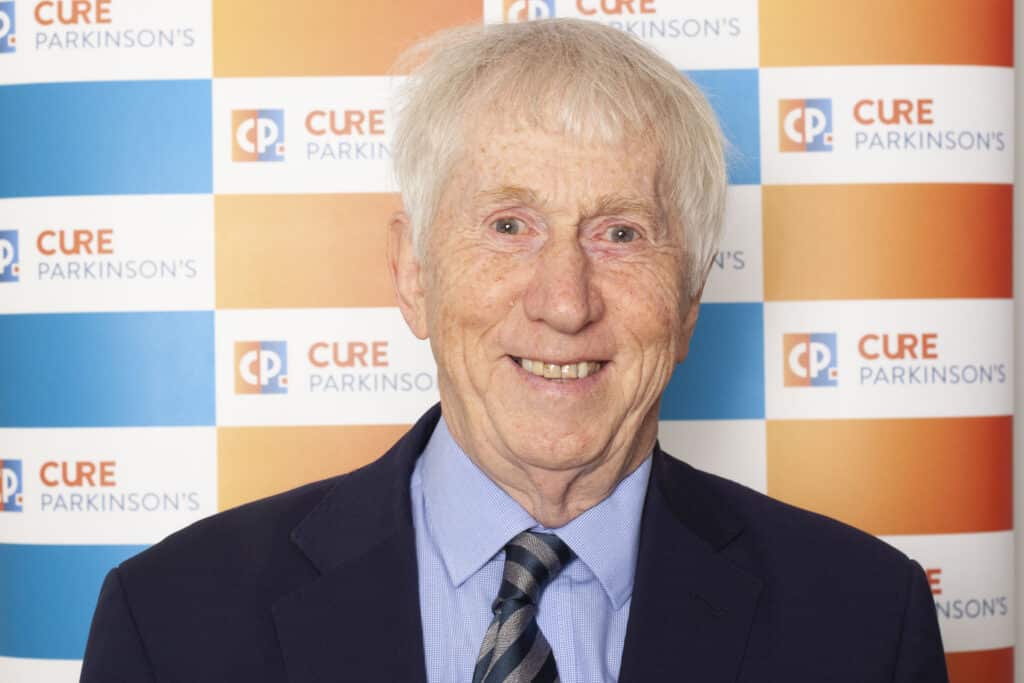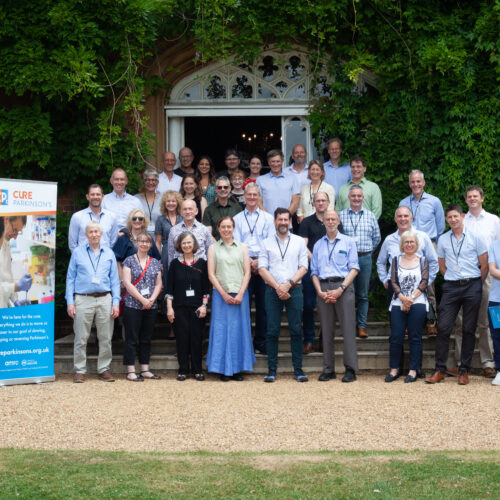Dr Richard Wyse named in His Majesty The King’s New Year’s Honours List
Dr. Richard Wyse, Cure Parkinson’s Director of Clinical Development, has been recognised with a prestigious inclusion in His Majesty The King’s New Year’s Honours List, for services to medicine in Parkinson’s disease.

Richard has built an innovative programme of research for Parkinson’s – the International Linked Clinical Trials initiative – and has played a huge part in transforming the way in which neurological research is carried out. Cure Parkinson’s is thrilled with the distinguished recognition of Richard’s dedication which has positively impacted the lives of so many people living with Parkinson’s.
Richard joined Cure Parkinson’s in 2007, soon after the charity was formed, having worked previously in the fields of cardiology and genetics. At that time, the Parkinson’s research arena was bleak, and the word ‘cure’ did not feature. Richard recognised the urgent need to create a novel research programme for the Parkinson’s community and the International Linked Clinical Trials programme (iLCT) was born. He has worked tirelessly since, driving it forward and from strength to strength.
The iLCT programme aims to accelerate the development of new treatments with the potential to slow, stop or even reverse Parkinson’s. It is run in partnership with Van Andel Institute in the US and since its launch the programme has completed 20 clinical trials of new potential treatments for Parkinson’s, 21 trials are currently underway and many more are in the pipeline. Over 4,700 people with Parkinson’s have taken part in this research. Importantly, recent results of three iLCT clinical trials for Parkinson’s have reported positive findings: two involving Type 2 diabetes medicines, and one for a drug used to treat liver disease. We look forward to more iLCT trial results in 2024.
Richard has also been instrumental in inspiring the first multi-arm trial for Parkinson’s, which commenced in Australia in 2020. Furthermore, he voluntarily provides advice to research-based organisations addressing other neurodegenerative conditions such as Huntington’s, multiple sclerosis (MS), motor neurone disease (MND), and Alzheimer’s.
We are so delighted that Richard’s vision, hard-work, creative thinking, scientific skill and sheer determination to find a cure has been so deservedly recognised. His contribution to the field of Parkinson’s research is completely unique, and has inspired so many. Congratulations, Richard!
Helen Matthews, CEO, Cure Parkinson’s




